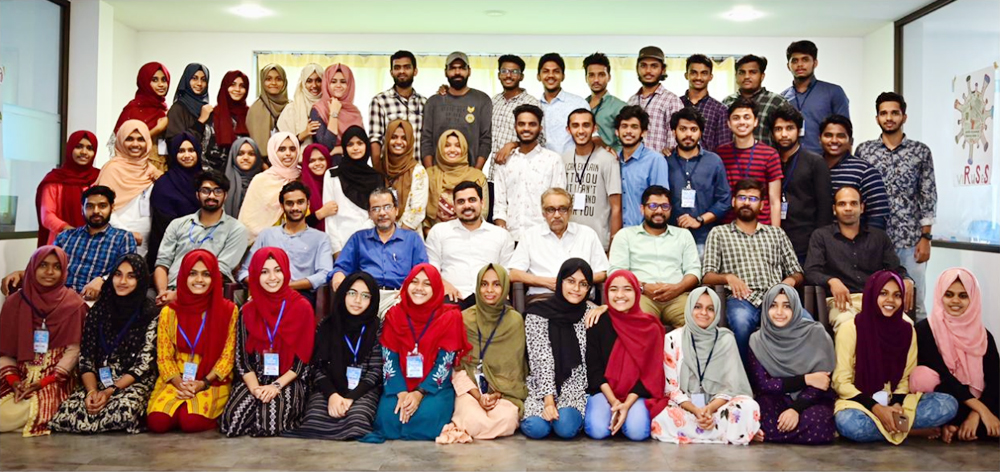IOS Winter School at Calicut concludes on a high note of confidence and hope

Calicut, Jan. 7, 2021: The six-day Winter School learning programme concluded yesterday with the participants registering hope and confidence in their academic pursuit and thanking the IOS for giving them an opportunity to absorb new vision about Islam and the positive role Muslims could play in reshaping the world.
The school only catering to graduates and postgraduates from northern districts of Kerala, due to the pandemic, included lectures, discussions and interactive sessions guided by academics and trainers.
Khalid Musa Nadvi, professor at Islamiyya College Kuttiady, in his lecture on Islamisation of Knowledge discussed in detail the contribution of late Dr. Ibrahim Raji al-Faruqi to the serious necessity of rethinking knowledge coming from the West. He said the fountainhead of true knowledge is Allah and His message works as parameters to distinguish between truth and falsehood. Modern knowledge however is the product mostly of Western thinkers and intellectuals who refused to acknowledge revealed knowledge. Islam wants to merge human intellect with real life problems and urges believers to work for spiritual enlightenment, readiness to fight for justice and equity and intellectual uplift. Islamisation of knowledge is the first step towards transformation of our worldview.
Dr. Hussain Randathani, a historian of note, talking about Contribution of Islam to Humanities and Social Sciences said Islam in history is lesson for people of the present. Islam incorporated local and traditional symbols of cultural behaviour and removed vestiges of polytheism and idolatry from human life. Sufism played a major role in this process without diluting the fundamentals of Thouhid. Zainudheen Makhdum, who first wrote about the victory of Muslims over the Portuguese invaders, was also spiritual in his approach to history as were some great Indian warriors of Islam.
NP Chekkutty, a reputed senior journalist, who opened the activities on the third day, narrated how a secular outsider viewed Islam and Muslims in the state. Islam was not a foreign religion in the past, said he, and like Christianity it was embraced by the toiling class living in the coastal regions. Islam brought about major changes in the habits of Keralites right from food to clothing. The word kafir was seen mainly in British writings and it was used as a tool to divide the society on religious lines. However, present-day Muslim community seems to face a clash of civilisations as its members are becoming closed and withdrawn.
A P Kunhamu, a prominent writer and commentator, underlined the multiplicity of thoughts in modern Islam and pointed out that the divisions among different sects is mainly the handiwork of disruptive forces working inside and outside. The basics of Islamic faith are unity of God, out of which derives concepts like equity, equality and justice. Modern Islamic thought needn’t be disruptive, but be part of the efforts to relate Islam to new intellectual challenges. For instance, Islamic feminism may be described as an attempt to relocate women in Muslim community from an obedient homemaker to one who is vocal and active in the society. It is interesting to note that Indian Muslim women are in the forefront of fight against the new draconian citizenship law.
Dr Ashraf Kalpetta, Dr Abdulla Manima, C Abdul Hameed, C Dawood, Sajjad Vaniyambalam, Aslam Permbra and CK Rashid were some other resource persons who dealt with topics like Higher Objectives of Sharia, Islamophobia, Principles of Leadership etc. There were interactive sessions and field surveys in addition to lectures.
The school concluded with a motivational speech laced with inspiring references to life and times of Prophet Muhammad (PBUH), by Ilyas Moulavi of Santapuram Islamiya College.
Go Back